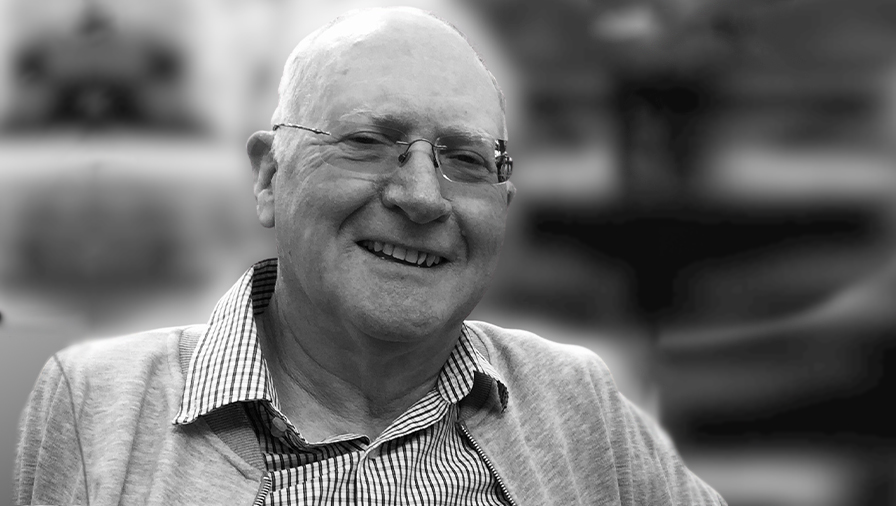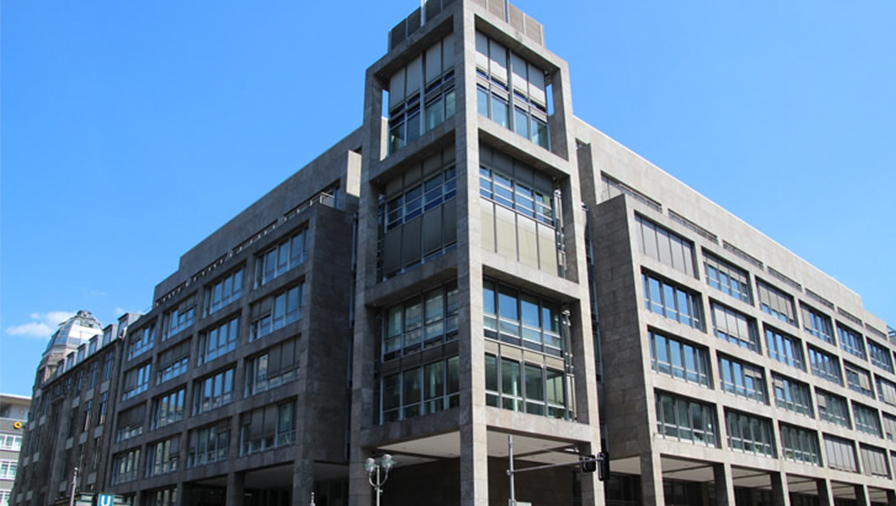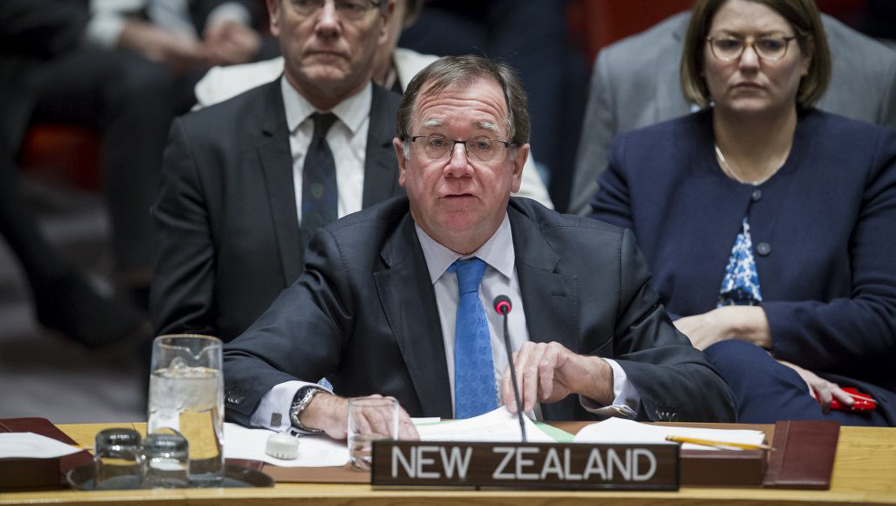

Confessions of a career diplomat
OPINION: Protocol, politics, and personal memoir.


OPINION: Protocol, politics, and personal memoir.
The exhortation ‘you should write a book’ is often heard about worthy or interesting people. Of course, few do so unless they are celebrities, politicians, or others who are genuinely worth reading about. Usually, these people are contacted by publishers interested in making money.
Unless you fit one of the above categories, the choice is often self-publishing. This is fraught with difficulties, not least of which is the high cost of printing and publishing, not to mention a lack of willing buyers.
Yet despite these risks, dozens of self-published volumes come out every year, even in a market as small as New Zealand. Professionals working in this area can often create a book that is as close to looking like a commercial one as you can get. But too often they reflect poor choice of paper, text layout, cover design, editing, and illustrations. Some of this is due to the lack of resources or just plain corner-cutting.
The legendary American book editor Max Perkins of Scribner’s is depicted in the movie Genius (2016) about his relationship with the 1930s writer Thomas Wolfe as wondering whether the ruthless cutting of words “made any difference”.
Wolfe was famous for his prodigious output, and his lengthy books were well-read in his day after being cut down to size. Today he is all but forgotten because of his verbiage, while Perkins’ other prodigies, Ernest Hemingway and F Scott Fitzgerald, are still popular because of their taut prose.
This is not to denigrate the contribution of self-publishers, who are often picked up by the professionals when they realise they have overlooked an obvious talent or marketable book.

Different need
Memoirs fill a different need. The urge to ‘write a book’ typically means a life fulfilled. That is certainly the case with Peter Hamilton, a retired career diplomat who will not be well-known to NBR readers, despite his contribution to the country’s economic benefit as a trade negotiator.
Hamilton was briefly in the news in 2013 when NBR reported his comments to the annual meeting of the Republican movement that the vice-regal position of the governor-general be converted into a head of state. This has been done in Samoa and would effectively make New Zealand a republic within the Commonwealth.
Heads of state receive a much higher status than governors-general in the protocol of all countries, but especially those with monarchies. Hamilton argues this second-string status affects New Zealand’s trade and other opportunities. Queen Elizabeth II cannot represent New Zealand as a head of state. If anything, in Hamilton’s experience, the royals in general are indifferent to New Zealand’s interests.
Despite a Ministry of Foreign Affairs & Trade denial that head-of-state protocol has hampered New Zealand’s diplomatic initiatives, it is only recently that a governor-general has travelled overseas specifically to promote the country at this level.

Hamilton makes a persuasive case and his claims cannot easily be dismissed. He was once New Zealand’s ambassador in Germany, from where he was also accredited to most other countries in central Europe. He was also head of the mission in Singapore. In both cases, protocol was important. It is reflected in the fact that European monarchies, such as the Netherlands, will only reciprocate invitations from other heads of state.
Personal history
Hamilton’s book, New Moons For Sam, is a combination of a personal memoir, mostly comprising a record of his family, and an account of his career. It is also the story of how an ordinary New Zealander, who emigrated from England as a child, prospered in an environment that rewarded diligence and hard work.
The Hamiltons arrived in 1961, his father becoming a farm manager in the King Country and his mother a teacher. Life was not easy at first but it gradually improved. Peter attended Hamilton Boys’ High School in the mid-1960s, when such schools still taught European languages and the senior teachers were mostly men who entered the profession after World War II.
Hamilton was one of the few selected each year by Volunteer Service Abroad, and he spent a ‘gap year’ as a teacher in Tonga. At the University of Auckland, his studies of medieval German gave him a scholarship to Germany. The student radicalism of that time did not appeal and, in another display of convention, in his early 20s he also married a fellow student.
On the couple’s return, Hamilton was one of only a dozen selected for the 1977 intake by the then Ministry of Foreign Affairs. Some of them later pursued careers outside the diplomatic service but eight remained in the ministry. One of them, Sir Maarten Wevers, was chief executive of the Prime Minister’s Department for eight years.

Low profile
Hamilton himself rose to be one of four deputy secretaries in MFAT, taking pride in his low profile as a career diplomat, whose job is to smooth the way and burnish the prestige of their political masters. But he does not hold back in a couple of chapters covering the final stages of his career and observations about politics affecting the ministry. He is particularly outspoken in comments about the change of government in 2008, when Murray McCully replaced Winston Peters as minister.
McCully was angry that the ministry had gone against the new government’s pro-Israel stance in a resolution at the UN. The government had also been embarrassed by leaks to the former minister, Phil Goff, who was then leader of the opposition. One leak was a diplomatic report Hamilton had written as High Commissioner in Singapore that outlined the “material damage being done to New Zealand’s diplomatic effort” and the “negative effects the planned reforms would have on our bilateral relationship [with Singapore]”.
Leaks from the public service to Labour were common, and the government reacted by trying to find the culprits. McCully also appointed an outsider, then NZ Post chief executive John Allen, as head of the ministry with the task of making it more corporate and recruiting more commercially-minded staff.

Ministry ‘witch hunt’
Hamilton’s version is that morale collapsed and the “witch hunt” wasted much time and effort, smearing the reputation of senior public servants “to no ultimate purpose”. The investigator, Paula Rebstock, “overstepped the mark in several of the key findings in her report, leading to the payment of large damages to several senior MFAT staff members,” he writes. Later, with the return of Peters as minister in 2017, MFAT had some of its funding restored and some of the closed embassies, such as Stockholm, were re-opened.
While these observations may be of interest only to those affected, Hamilton is not shy in revealing some indiscretions. One is that Samoans do not reply to RSVPs, so when Prince Andrew held a reception fewer than expected turned up. The non-Western international civil servants who head UN organisations such as the FAO are more interested in getting their pictures taken with world leaders than worrying about New Zealand’s agricultural policies.
Although Peters has a reputation for not reading Cabinet papers, Hamilton points the finger at Sir John Key for “winging it” rather than following his briefing notes for top-level discussions. Key once sought a meeting with Singapore business leaders but had no specific proposals when they expected some.
In his extensive trade dealings, Hamilton found the Japanese were tough negotiators but they stuck to any agreement, while the Koreans would seek changes afterward. The Americans cut deals that suited them, rather than aim for the greater good.
Auckland academic and anti-free trader Jane Kelsey comes in for special attention. “I have never seen any good … analysis from her of the outcomes [of trade agreements].”
I asked Hamilton about the meaning of the title of his book, as it escaped me. It turned out that a rarely seen English grandmother, who called him Sam, insisted on inspecting the moons of his nails. Her personality was instrumental in making her son, Hamilton’s father, decide to make a “new moon” by emigrating to New Zealand.
New Moons for Sam, by Peter Hamilton (Mawhitipana Publishing).
Nevil Gibson is a former editor at large for NBR. He has contributed film and book reviews to various publications.
This is supplied content and not paid for by NBR